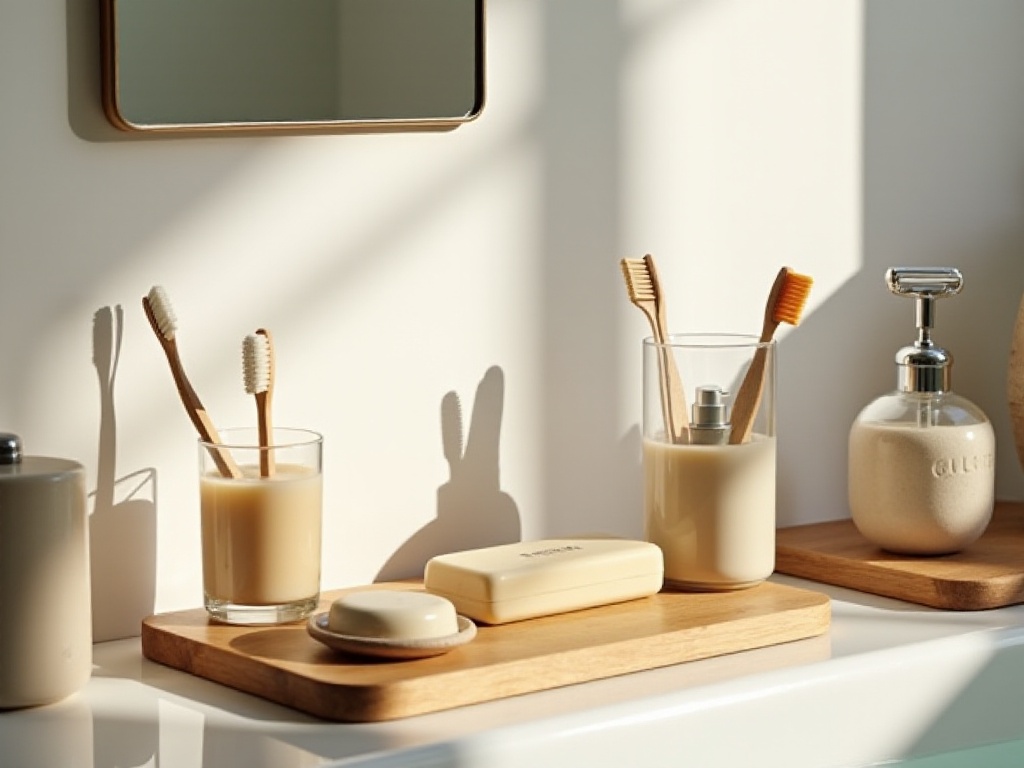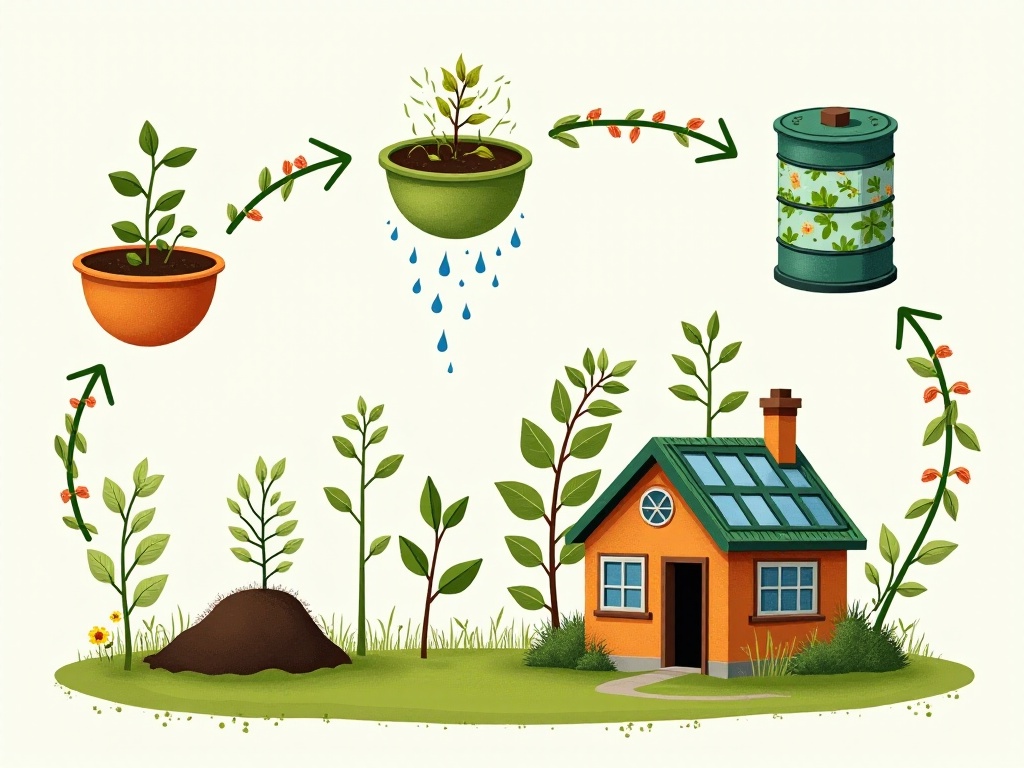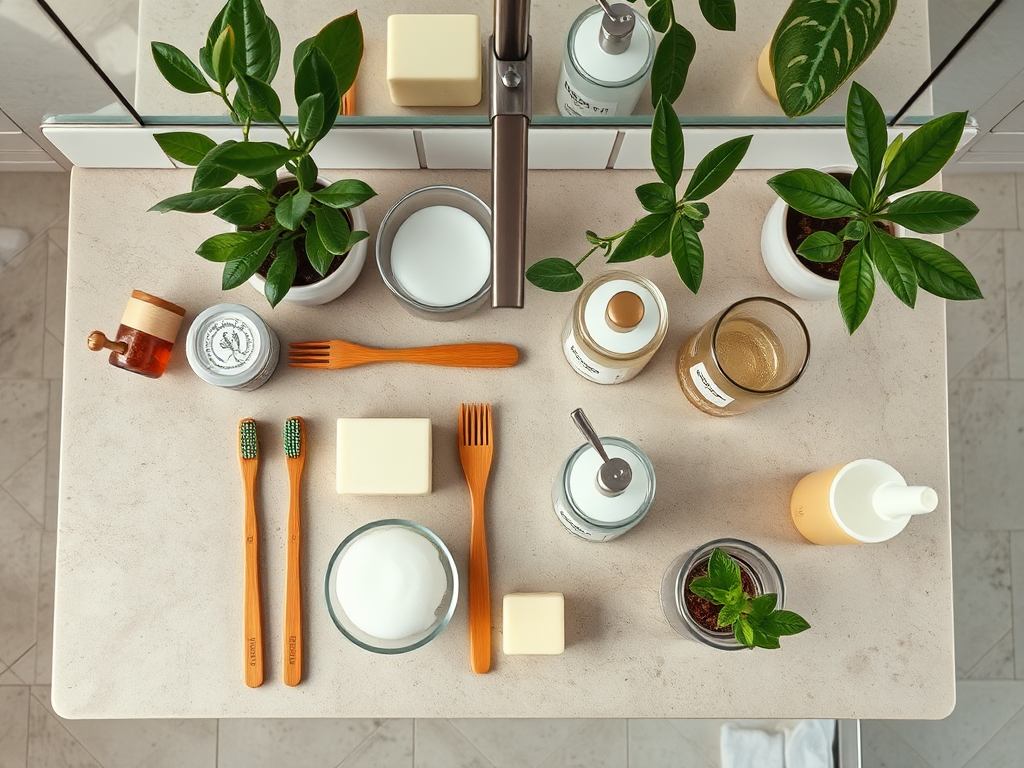Opening Thoughts
Today I want to share with you my experiences in life management over the past year. Did you know that everyone can achieve qualitative improvements in their quality of life through small changes? I'm just an ordinary post-90s woman, but through continuously adjusting and optimizing daily habits, I've truly discovered that life can be both relaxed and refined.
Starting a year ago, I gradually realized that improving quality of life doesn't require dramatic changes, but comes from accumulating small improvements. These tiny changes are like a snowball, growing larger as time passes, ultimately bringing unexpected rewards. I deeply understand that the essence of a good life lies in establishing a positive life system, where every daily decision adds a measure of quality to our lives.
Physical Management
About Weight
I remember this time last year, I was still worried about my weight. It wasn't until I started weighing myself and keeping records daily that I discovered weight management could be so simple. I installed a weight tracking app on my phone, weighed myself every morning after waking up, and the app would automatically generate a curve graph. Through this method, I could promptly notice subtle weight changes and adjust my diet and exercise plans in advance.
Data recording not only helped me better understand my physical condition but also revealed many interesting patterns. For instance, I noticed my weight would slightly increase before my period and fluctuate during stressful work periods. These discoveries taught me to view weight changes more rationally and not feel anxious about short-term fluctuations.
I also established a weight management journal, recording daily diet, exercise, and emotional states. Through analyzing these records, I gradually identified the key factors affecting my weight. It turned out that after pulling an all-nighter, I was more likely to overeat the next day; while on days when I was in a good mood, I not only ate more regularly but also had more motivation to exercise.
Looking back at last year's weight curve now, I can clearly see my progress trajectory. From the initial ups and downs to now maintaining stability, this process has taught me that weight management isn't about dieting, but about building awareness of one's body.
During the entire weight management process, I've experienced several setbacks. There was a period when work was particularly busy, and I couldn't maintain weight recording for several consecutive weeks, leading to weight rebound. But I didn't give up; instead, I readjusted my plan and changed my weigh-in time to evening, so even if I was rushing in the morning, I wouldn't interrupt the recording.
Nutritional Supplementation
Speaking of nutrition, many people might think "healthy eating" means eating very plain and light meals. But that's not the case. My current diet plan is like this: breakfast is mandatory and must be substantial; lunch must include at least one portion of protein, such as chicken breast or soy products; dinner has controlled carbohydrates, but never completely eliminates them.
To ensure balanced nutrition, I specifically studied basic nutritional science. It turns out an ideal breakfast should include carbohydrates, protein, and healthy fats. My current breakfast typically consists of whole wheat bread with boiled eggs and avocado, paired with a glass of unsweetened soy milk. This combination is not only nutritious but also keeps me feeling full and energetic throughout the morning.
Protein supplementation at lunch is particularly important because it helps maintain muscle mass and provides lasting satiety. I prepare lunch ingredients for the week in advance, marinating chicken breasts on weekends and pairing them with different sauces and side dishes, making each day's lunch both nutritionally balanced and varied.
Every day I ensure I consume 5 servings of fruits and vegetables, which sounds like a lot but can be arranged like this: an apple for breakfast, a salad for lunch, an orange for afternoon tea, and two different vegetables for dinner, easily meeting the goal.
In practice, I've found that the key to preparing healthy ingredients lies in proper storage methods. When shopping, I categorize fruits and vegetables and place items that need to be consumed quickly in visible locations. Every Sunday evening, I spend half an hour cutting and packaging fruits, so they're ready to eat whenever I want them.
Regarding supplements, I believe it should be personalized. I choose vitamin D and omega-3 because I work in an office with limited sun exposure and don't eat much fish. But supplement intake must be moderate; never think more is better.
When choosing supplements, I pay special attention to ingredients and dosage. Through researching relevant materials and consulting nutritionists, I learned that the recommended daily dose of vitamin D is 800-1000IU, while omega-3 daily supplementation should be between 1-2 grams. When shopping, I also check product certifications and choose reputable brands.
Exercise Plan
Regarding exercise, my advice is: start with a small goal. For instance, I initially just walked to and from work, about a 30-minute journey. Later, I gradually added some simple strength training, and now I maintain 3-4 gym sessions weekly.
When first creating an exercise plan, I took several wrong turns. Initially too aggressive, I tried high-intensity training in the first week, resulting in severe muscle soreness that almost made me quit. Later I learned the importance of gradual progress, starting with basic movements and slowly increasing training volume and difficulty.
To maintain exercise consistency, I specifically studied basic exercise physiology. It turns out that more exercise isn't always better, and adequate rest is also important. Now I adjust my training plan according to my physical condition, reducing intensity when feeling fatigued to ensure exercise sustainability.
At home, I've set up a simple exercise corner with a yoga mat and basic equipment. This way, even when I can't go to the gym, I can complete some basic training at home. I particularly enjoy doing 10 minutes of stretching in the morning, which not only awakens my body but also energizes the start of my day.
The changes exercise brought me aren't just physical, but more importantly psychological. Through consistent exercise, I've built stronger confidence and willpower. Now I not only have better physical fitness but also improved ability to handle work pressure.
Minimalist Living
Practicing Decluttering
Did you know? I once counted my wardrobe and discovered I regularly wear only about a dozen pieces of clothing. So I started trying minimalism and donated clothes I hadn't worn in a long time. Now my morning clothes selection time has shortened from 15 minutes to 3 minutes, and I feel much lighter mentally.
In practicing decluttering, I found the hardest part isn't throwing things away, but overcoming the "might need it later" mentality. To solve this, I set up a "transition box" where I put items I'm unsure about discarding. If I haven't touched them in three months, it means these items can truly be let go.
Besides clothing, I also decluttered other life items. For example, with cosmetics, I now only keep basic skincare products and makeup, each item carefully selected after repeated testing to ensure it suits me. This not only saves space and money but actually improves skincare results.
For book management, I adopted a "one in, one out" principle. For every new book purchased, I must dispose of an old one, either giving it away or donating it to the library. This rule makes me more careful when buying books and encourages me to finish reading books on hand promptly.
Living space organization is also an ongoing process. I regularly check every corner of my home and categorize items that aren't frequently used. For instance, with kitchen utensils, I kept only the most frequently used ones and either gave away or donated the others. This not only makes the space neater but also improves cooking efficiency.
Zero Waste Exploration
In practicing a zero-waste lifestyle, I discovered the key is changing shopping habits. Now before buying anything, I ask myself three questions: Do I really need this? Can I rent or borrow it? Is there a more environmentally friendly option?
This shift in consumption mindset gave me a new understanding of "ownership." Previously, I thought buying new things would bring happiness, but now I more enjoy the freedom that comes with simple living. I've started borrowing rather than buying items I only use occasionally, like camping equipment which I share with friends.
In daily life, I'm constantly exploring ways to reduce waste. In the kitchen, I turn nearly expired ingredients into new dishes; fruit peels can be used as natural cleaners; leftover bread can be made into breadcrumbs. These small changes are not only environmentally friendly but also add creativity to life.
For instance, I now bring my own shopping bags and containers when grocery shopping, choosing bulk items over excessively packaged products. Although it seemed troublesome at first, after getting used to it, I found it particularly meaningful. According to environmental organizations, an average family can reduce the use of 300-400 plastic bags annually by consistently using reusable shopping bags.
For personal care products, I'm gradually transitioning to more environmentally friendly choices. Using reusable cotton pads, choosing solid shampoo and shower soap - these small changes may seem minor but have significant effects when maintained long-term. Statistics show that using solid shampoo can reduce plastic packaging waste by about 80%.
In office life, I'm also practicing zero-waste principles. Using erasable notebooks instead of traditional paper, bringing my own water bottle and cutlery - these small habits not only protect the environment but also save expenses. My colleagues and I have even established a small book corner where we can exchange books, being both environmentally friendly and expanding our knowledge.
Final Thoughts
This year's experience in life management has taught me that change doesn't need to be radical; gradual progress is the sustainable way. Have you also been trying to change your lifestyle? Welcome to share your story in the comments.
In this efficiency-driven era, we often overlook life's details. But it's precisely these seemingly trivial changes that have made my life more composed and quality-focused. For instance, now I set aside an hour of "alone time" each day, which can be reading, journaling, or simply sitting quietly. This time allows me to truly dialogue with myself, organize thoughts, and plan for the future.
Through this year's practice, I deeply understand that improving life quality isn't about material accumulation, but about attitude and reflection on life. Each small habit formed is a pursuit of better living, and each self-improvement is respect for life.
Finally, I want to say that managing life isn't about constraining yourself, but about making life easier and more refined. Like me now, although I'm still constantly adjusting and improving, I can already feel the happiness these small changes bring. I believe you can also find your own way of life management.
Life is like a painting, and everyone is the artist of their own life. Through continuous color adjustment and drawing, we will eventually create our own wonderful life. Let's continue forward together on this path of pursuing quality life, mindfully experiencing every present moment, and creating our own life's beauty.








